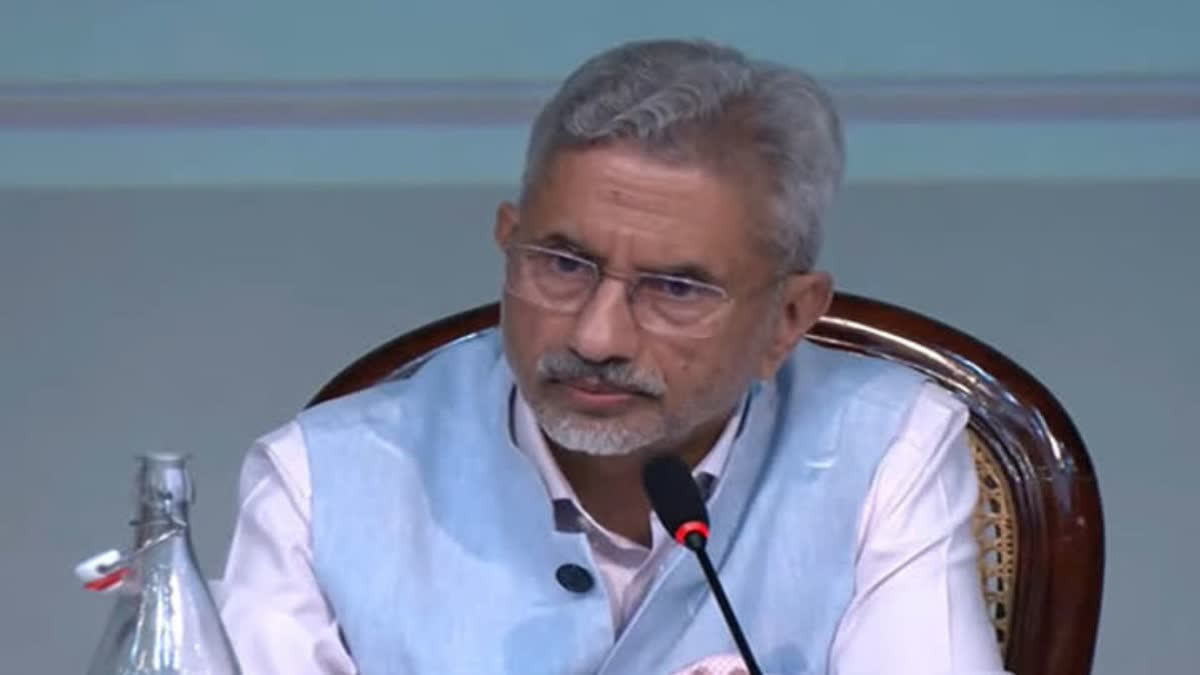New Delhi: The 23rd Shanghai Cooperation Organisation (SCO) Council of Heads of Government meeting, hosted by Pakistan concluded on Wednesday, 16 October. It was attended by External Affairs Minister S Jaishankar amid strained ties and especially the heated exchange of words at the United Nations General Assembly (UNGA) session.
The UNGA is the policy-making organ of the United Nations and it comprises all member states. Each of the 193 member states of the United Nations has an equal vote.
What are the key takeaways from the SCO meeting in Islamabad from India's point of view?
India made a positive and constructive contribution to the deliberations of the SCO meeting. Moreover, eight outcome documents were signed during it. There are eight key takeaways from New Delhi's point of view which include - developing a dialogue on the idea of One Earth, One Family, One Future; Outcomes of Indian initiatives like SCO Startup Forum, SWG on Startups and Innovation and Traditional Medicine welcomed by SCO members; DPI & Digital inclusion becoming part of SCO cooperation framework; SCO taking inspiration from Mission LiFE to achieving UNSDGs.
Another outcome of the SCO meeting was enhancing global food security and nutrition through promoting the use of climate-resilient and nutritious grains like millet; and upholding fair and balanced connectivity projects in accordance with international law, the goals and principles of the UN Charter and SCO Charter.
Reemphasising rules-based, non-discriminatory, open, fair, inclusive and transparent multilateral trading system with World Trade Organization (WTO) at its core; opposing protectionist actions, unilateral sanctions, and trade restrictions that undermine the multilateral trading system and impede global sustainable development, are the other takeaways.
India also extended its best wishes to Russia as it takes over the SCO CHG Presidency. In the national statement at the SCO, Jaishankar emphasised that SCO needs to be able and adept at responding to challenges faced by all in a turbulent world.
He highlighted that: SCO’s primary goal of combatting terrorism, separatism and extremism is even more crucial in current times. It requires honest conversation, trust, good neighbourliness and reaffirming commitment to the SCO Charter. SCO needs to be firm and uncompromising in countering the 'three evils'.
He pointed out that globalisation and rebalancing are current-day realities. There's a need for SCO countries to take this forward. Cooperation must be based on mutual respect and sovereign equality, recognise territorial integrity and sovereignty and be built on genuine partnerships, not unilateral agendas. SCO cannot progress if we cherry-pick global practices, especially in trade and transit, he asserted.
Jaishankar noted that SCO should lead the advocating that global institutions need to keep pace through reformed multilateralism to make the UNSC more representative, inclusive, transparent, efficient, effective, democratic and accountable.
Why SCO was formed and how did India become a part of it?
The SCO was formed in 2001 primarily to promote regional security, economic cooperation, and cultural exchange among member states. Initially, it focused on combating terrorism, separatism, and extremism, reflecting concerns in Central Asia.
India became a part of the SCO as a full member in June 2017. Its accession was driven by several factors, including India's sought to enhance its regional security collaboration, especially regarding terrorism and stability in Afghanistan. The SCO provides a platform for India to engage in economic partnerships and trade with Central Asian countries.
Joining the SCO allowed India to strengthen its ties with key regional players, like China and Russia, amid shifting global dynamics. India's membership in the SCO reflects its commitment to regional stability and cooperation in various fields. The SCO CHG meeting is held annually and focuses on the trade and economic agenda of the Organisation. India remains actively engaged in the SCO format, including various mechanisms and initiatives within the SCO framework.
Jaishankar's visit was the first visit by an Indian foreign minister to Pakistan after a gap of nine years. The last visit was by the then-EAM Sushma Swaraj in early December 2015 for the Heart of Asia Conference on Afghanistan. Jaishankar, who was then India’s foreign secretary, had accompanied Sushma Swaraj.



